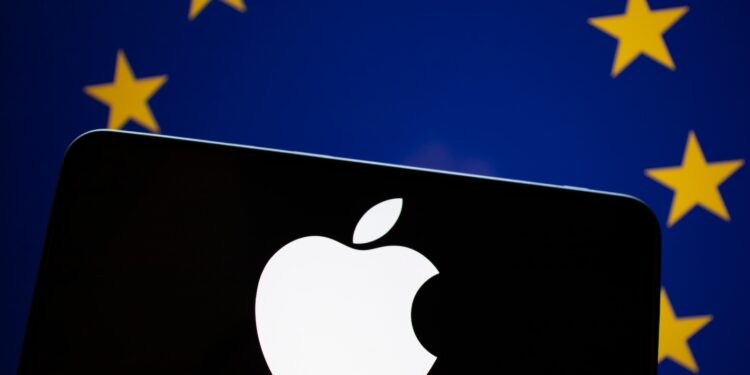Apple is to pay a $570 million (€500 million) fine for alleged violations of the EU's Digital Markets Act (DMA). The decision is causing controversy because, according to a POLITICO report, Apple had already attempted to enter into dialogue with the EU and offer solutions in 2024. The fine was imposed anyway. Now the company is appealing. A closer look at the background reveals that the matter is not as clear-cut as it seems at first glance.
With the DMA, the European Union aims to impose stricter regulations on major tech companies. Apple is one of the so-called gatekeepers – platforms with particularly strong market power that, according to the EU, should allow for more competition. This is understandable. But regulation is one thing, willingness to engage in dialogue is another. Apple seems to have sought precisely this dialogue in 2024 – and was apparently ignored.
Apple proposed measures – no clear response from the EU
According to the POLITICO report, Apple executives submitted a series of proposals to the EU as early as 2024. The goal was to better comply with existing requirements. This is particularly evident in the area of communication between app developers and users: Apple offered to relax restrictions to give developers more freedom. However, the EU's response failed to materialize – or was at least delayed. The Commission asked Apple to postpone the proposal until it received feedback from developers. After that, there was largely silence. From Apple's perspective, this gave the impression that the company had no real interest in a constructive dialogue. A letter from October 2024 to senior officials in the Directorates-General for Connect and Competition demonstrates how seriously Apple took the situation. The letter states that the relevant case teams at the EU Commission had already made it clear at that point: a fine was a done deal – regardless of what further proposals might follow.
The EU sticks to its line – with questionable justification
In response to a POLITICO inquiry, the EU Commission stated that its door is "always open." At the same time, spokeswoman Lea Zuber clarified that Apple alone is responsible for compliance with the rules. The penalty applies only to specific violations—not hypothetical or announced measures. This sounds plausible at first. But it also raises questions: If the EU was truly open to discussions, why was there no clear response to Apple's proposals? And why is a company being punished that clearly tried to present solutions in a timely manner? Given the processes described, it seems understandable that Apple felt it was being blocked in this context.
Apple wanted to talk – but the EU apparently didn’t listen
The EU emphasizes that it is acting neutrally and based on rules. But from today's perspective, its dealings with Apple don't exactly appear open or cooperative. If a company proposes concrete steps as early as 2024, only to have them ignored and instead face a hefty fine, then the question arises as to how serious the EU is about its supposedly open door policy. Apple now faces a lengthy appeal process, where the arguments on both sides will be examined in detail. But it's already clear: While the EU may have the final say, it's not automatically right. A look at the facts quickly reveals that Apple isn't just acting as a rule-breaker—but also as a company that was willing to adapt but apparently ran into a wall. (Image: Shutterstock / daily_creativity)
- Google contradicts Apple manager: usage continues to rise
- EU attacks Apple: US speaks of targeted discrimination





